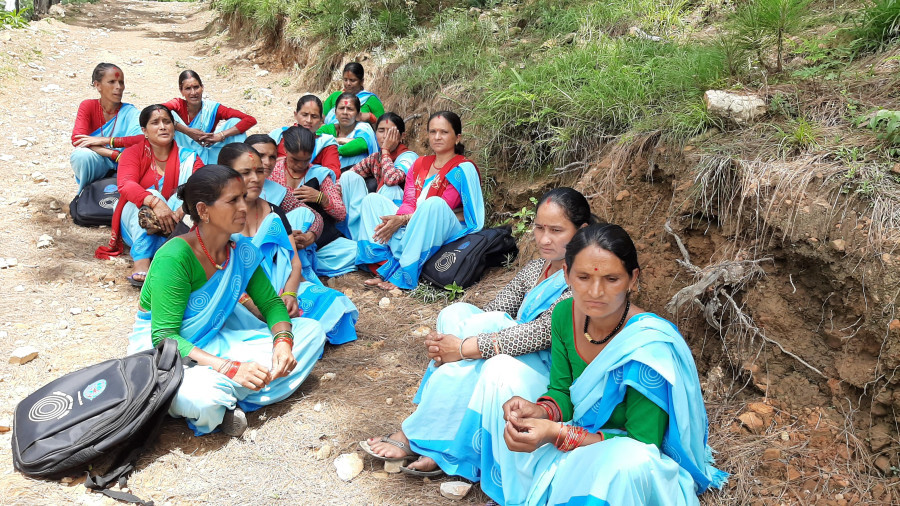Health
Identifying mental health patients through female health volunteers
Officials hope the volunteers will encourage patients to seek treatment and to continue medication for anxiety, depression, alcohol use, psychosis and suicidal tendencies.
Arjun Poudel
The Ministry of Health and Population is enlisting the support of female community health volunteers (FCHV) to identify people suffering from mental health problems. Accordingly, it is organising an orientation training on mental health for FCHVs serving across the country.
Officials hope that through this initiative, thousands of mental health patients who have thus far been deprived of treatment will be able to get timely medication with the help of FCHVs.
“We have been preparing to organise a two-day mental health orientation for FCHVs,” said Dr Phanindra Baral, chief of the mental health section at the Epidemiology and Disease Control Division. “We hope that with the help of female community health volunteers, a large number of mental health patients residing mainly in the remote areas could be identified and they will get timely treatment.”
There are 51,423 female community health volunteers serving across the country. Officials said FCHVs have played a crucial role in the success of public health programmes in Nepal.
Vitamin A supplements, deworming programmes, maternal and child health, nutrition, immunisation, and prevention of vector- and water-borne diseases are among the programmes that have an active participation of the FCHVs.
Nepal successfully reduced the maternal mortality rate from 539 in 1996, to 239 in 2016. For this the country received the Millennium Development Goal award. The hard work of FCHVs is credited for its success.
Likewise, the mother's group under such health volunteers also played a crucial role in empowering women and mitigating violence against women. “Currently, we have been imparting mental health training to health workers serving in 55 districts,” said Baral. “Once the training for the health workers is complete, the orientation of the FCHVs will be started.”
The Health Ministry has allocated Rs1 million each to 55 districts to impart mental health training to health workers and FCHVs.
“We will provide some case studies for the identification of mental health problems– anxiety, depression, alcohol use, psychosis, and suicidal thoughts to FCHVs,’ said Dr Basudev Karki, a consultant psychiatric serving at the Nepal Mental Hospital. “FCHVs will encourage the patients to go to nearby health facilities for treatment. They will also encourage patients to continue their medications.”
Studies show the magnitude of suffering, the burden and costs for individuals, families and societies arising from mental health disorders are alarming in Nepal.
Nepal is among the countries with the highest rate of suicide, which is an extreme manifestation of a mental health problem.
According to data provided by the Nepal Police, 6,993 people died by suicide in the fiscal year 2022-2023, which is more than 19 people on average daily. Fifty-six percent of those who die by suicide are men.
In Nepal, generally people do not like to talk about mental health problems due to the social stigma attached to the problem and lack of awareness. Doctors say that people do not attempt suicide for any single reason, but due to a complex situation compounded by multiple problems.
An increasing number of people are tackling mental problems owing to the rising cost of living and the struggle to manage even their most basic needs, such as food, housing, healthcare and job security, experts say.
Whatever the cause, suicides and suicide attempts have a ripple effect—impacting families, friends, colleagues, communities and societies, doctors say.
A study carried out by the Nepal Health Research Council in the past shows that about 13 percent of Nepalis suffer from some form of mental disorder. This means around one in eight Nepalis has mental health issues. Moreover, the country simply does not have enough experts to treat mental health problems, it added.
The chances of hiring mental health experts at district hospitals in the foreseeable future is slim because the country has a shortage of such experts, the Health Ministry officials said.
They estimated that there are around 200 psychiatric doctors in the country and most are working in the big cities.




 8.75°C Kathmandu
8.75°C Kathmandu















